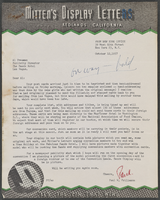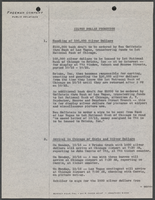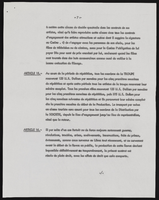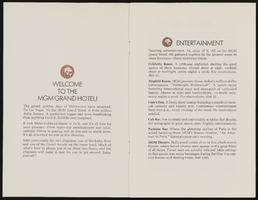Search the Special Collections and Archives Portal
Search Results
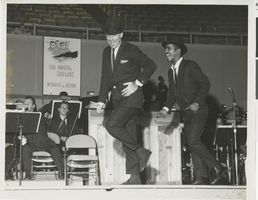
Photograph of Peter Lawford and Sammy Davis, Jr., dancing onstage during a Four Immortal Chaplains benefit at the Las Vegas Convention Center, February 7, 1960
Date
2 to 7
Archival Collection
Description
Peter Lawford and Sammy Davis Jr. dancing onstage during a Four Immortal Chaplains benefit at the Las Vegas Convention Center on February 7, 1960.
Image
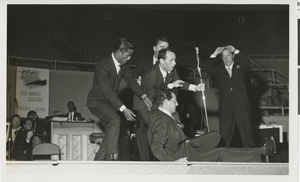
Photograph of Sammy Davis, Jr., Joey Bishop, Peter Lawford and Dean Martin onstage during a Four Immortal Chaplains benefit at the Las Vegas Convention Center, February 7, 1960
Date
2 to 7
Archival Collection
Description
Sammy Davis, Jr., Joey Bishop, Peter Lawford and Dean Martin grabbing for the microphone onstage during a Four Immortal Chaplains benefit at the Las Vegas Convention Center on February 7, 1960
Image
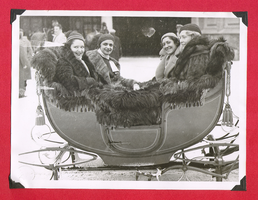
Clara Bow Bell (left) and three other unidentified women in a sleigh in Europe during her honeymoon: photographic print
Date
1880 to 1979
Archival Collection
Description
Bell Family Scrapbook scanning, Set 4, proofed 11.04.2010 Clara Bow (left) and three other unidentified women in a sleigh in Europe
Image
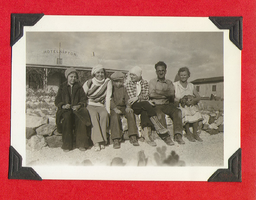
Group shot of six people, including Clara, at the Hotel Nipton: photographic print
Date
1880 to 1979
Archival Collection
Description
Bell Family Scrapbook scanning, Set 4, proofed 11.04.2010 Group shot of six people at the Hotel Nipton. Clara Bow is seated third from the right
Image
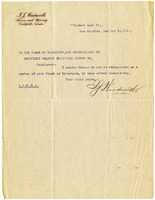
Letter from I. J. Woodworth to Goldfield Belmont Extension Mining Company, May 11, 1914
Date
1914-05-11
Archival Collection
Description
Woodworth's letter of resignation from the Board of Directors of the Goldfield Belmont Extension Mining Company.
Text
Pagination
Refine my results
Content Type
Creator or Contributor
Subject
Archival Collection
Digital Project
Resource Type
Year
Material Type
Place
Language
Records Classification


